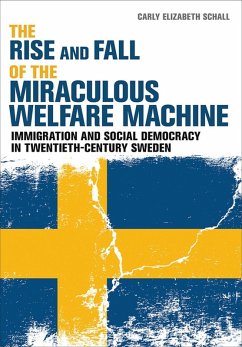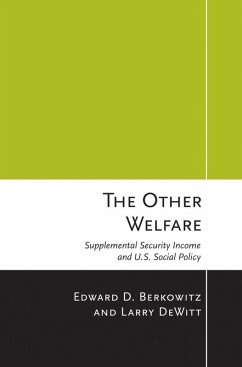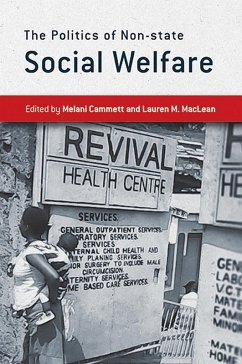Sweden is well known for the success of its welfare state. Many believe that success was made possible in part by the country's ethnic homogeneity and that the increased diversity of Sweden's population is putting its welfare state at risk. Few, however, have suggested convincing mechanisms for explaining the precise relationship between relative ethnic homogeneity/heterogeneity and the welfare state. In this book Carly Elizabeth Schall acknowledges the important role of ethnic homogeneity in Sweden's thriving welfare state, but she argues that it mattered primarily because political elites- especially social democrats-made it matter.
Schall shows that diversity and the welfare state are related but that diversity does not undermine the welfare state in a straightforward way. Tracing the development of the Swedish welfare state from the late 1920s until the present day, she focuses on five historical periods of crisis. She argues that the story of Swedish national identity is a story of elite-driven hegemony-building and that the linking of social democracy and national identity colored the integration of immigrants in important ways. Social democracy could have withstood the challenge posed by immigration, but the faltering of social democratic hegemony opened a door for anti-immigrant sentiment. In her deft analysis of the relationship between immigration and the welfare state in Sweden, Schall makes a compelling argument that has relevance for immigration policy in the United States and elsewhere.
Schall shows that diversity and the welfare state are related but that diversity does not undermine the welfare state in a straightforward way. Tracing the development of the Swedish welfare state from the late 1920s until the present day, she focuses on five historical periods of crisis. She argues that the story of Swedish national identity is a story of elite-driven hegemony-building and that the linking of social democracy and national identity colored the integration of immigrants in important ways. Social democracy could have withstood the challenge posed by immigration, but the faltering of social democratic hegemony opened a door for anti-immigrant sentiment. In her deft analysis of the relationship between immigration and the welfare state in Sweden, Schall makes a compelling argument that has relevance for immigration policy in the United States and elsewhere.
Dieser Download kann aus rechtlichen Gründen nur mit Rechnungsadresse in A, D ausgeliefert werden.









